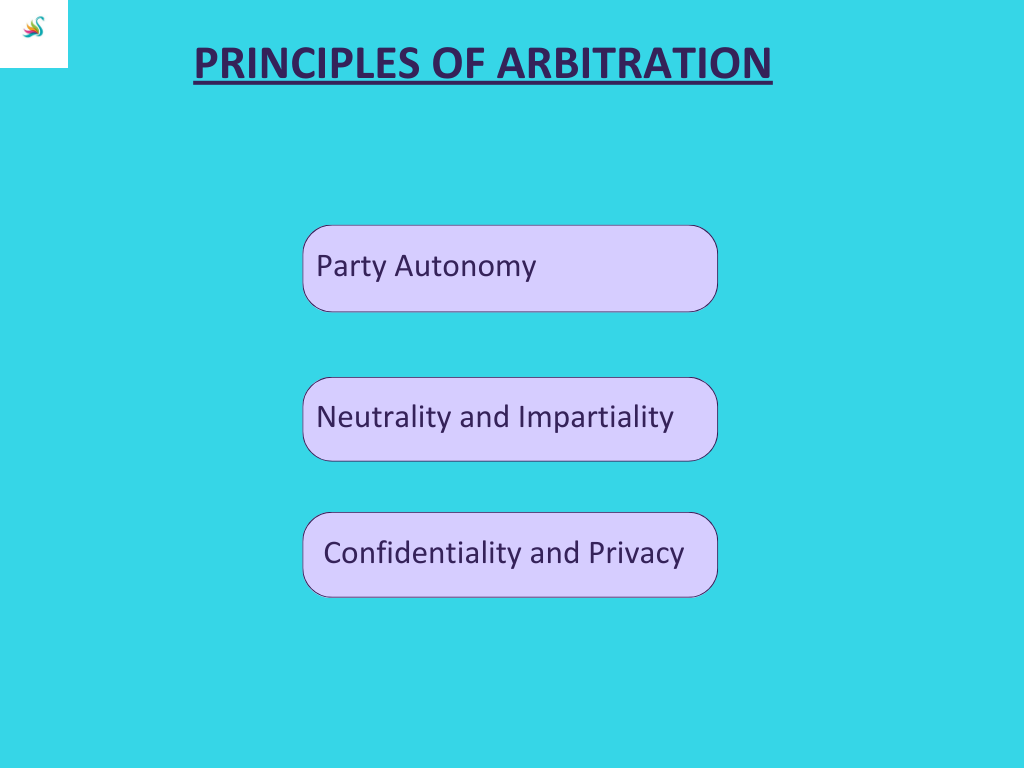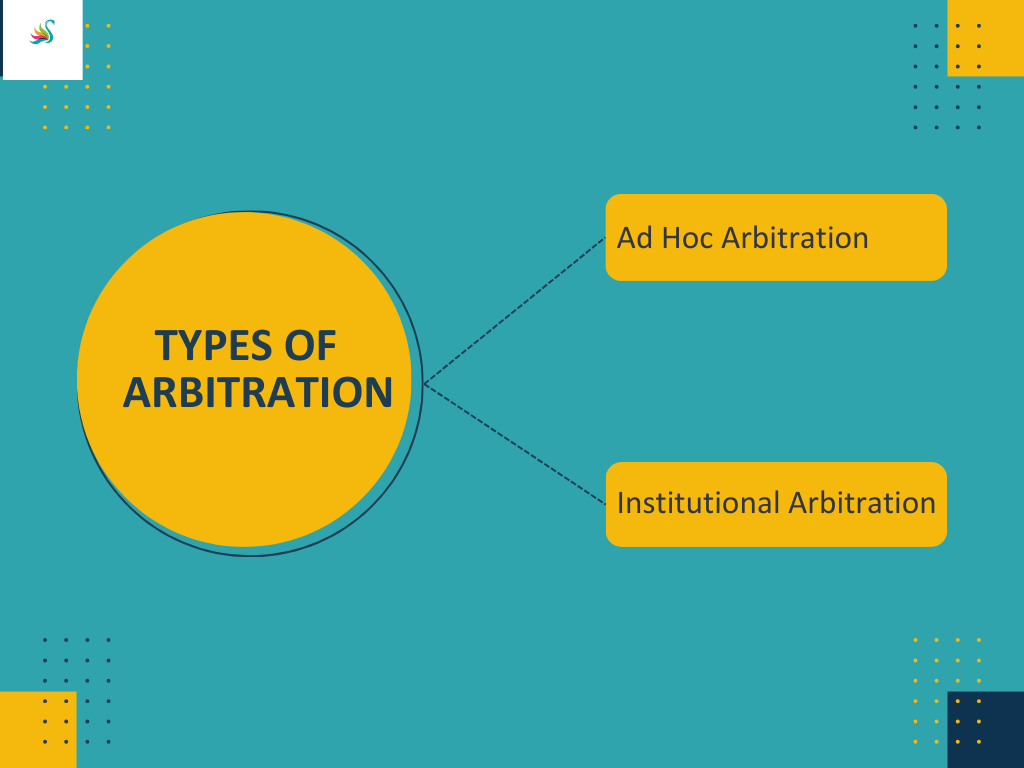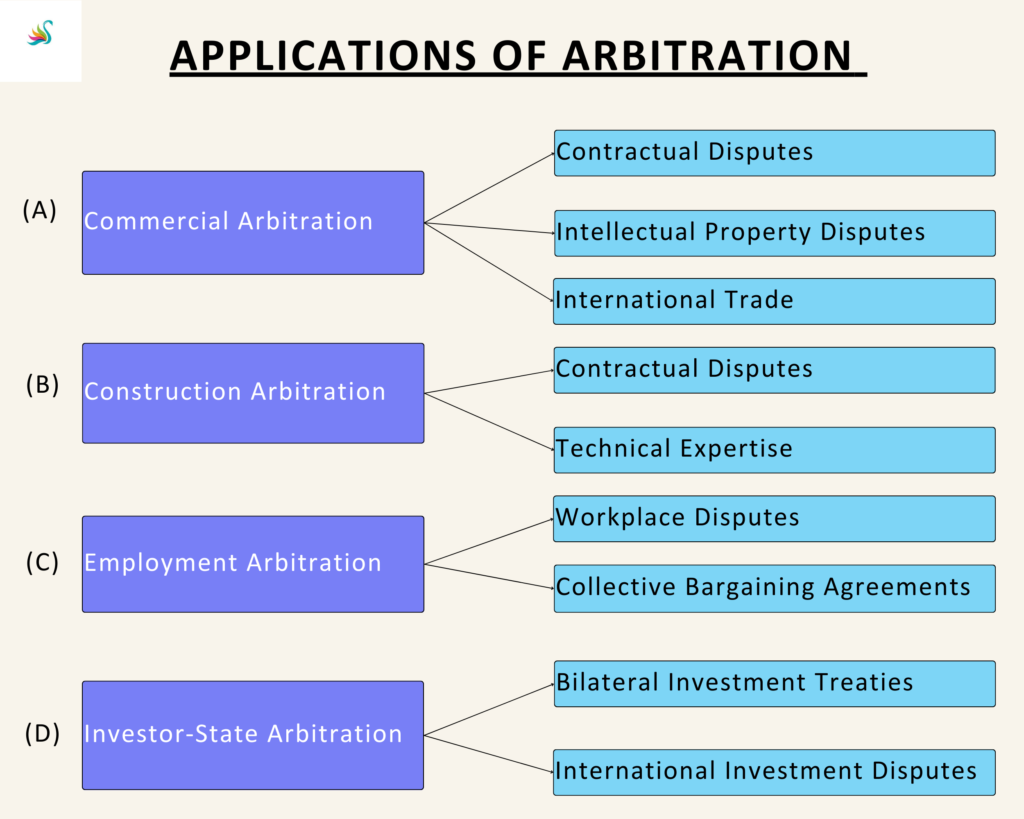Arbitration as a Mode of Dispute Resolution
Definition and Concept of Arbitration:

Arbitration is a widely recognized and trusted alternative dispute resolution (ADR) method used for resolving various conflicts outside the traditional court system. It involves the use of a neutral third party, called an arbitrator or arbitral tribunal, who is appointed by the disputing parties to make a binding decision. The decision rendered by the arbitrator, known as an arbitral award, is enforceable as if it were a judgment of the court.
Brief Historical Background
The practice of arbitration dates back to ancient times, where it was used to resolve commercial disputes. Over time, arbitration has evolved and gained acceptance across many jurisdictions, leading to the development of national laws and international conventions that govern its practice. Examples of such conventions include the United Nations Commission on International Trade Law (UNCITRAL) Model Law and the New York Convention on the Recognition and Enforcement of Foreign Arbitral Awards.
Principles of Arbitration:

Party Autonomy: One of the fundamental principles of arbitration is the autonomy of the parties involved. They have the freedom to select the arbitrator(s), determine the rules and procedures, and define the scope of the arbitration agreement.
Neutrality and Impartiality: The arbitrator(s) must be neutral and impartial, ensuring the fairness of the process and the decision-making. This principle guarantees that parties will receive a fair hearing.
Confidentiality and Privacy: Unlike court proceedings, arbitration offers confidentiality, allowing parties to keep their disputes private. This aspect often appeals to businesses seeking to protect their reputation or sensitive information.
Types of Arbitration:

Ad Hoc Arbitration: Parties have the flexibility to determine the rules and procedures to be followed, and the arbitrator(s) chosen to resolve their dispute. This method is commonly used in smaller or one-off cases.
Institutional Arbitration: Parties agree to refer their dispute to an established institution that provides administrative support and rules for the arbitration, such as the International Chamber of Commerce (ICC) or the London Court of International Arbitration (LCIA). Institutional arbitration follows predetermined procedures and rules, ensuring efficiency and consistency.
Applications of Arbitration across Different Industries and Scenarios:

A. Commercial Arbitration:
Contractual Disputes: Arbitration is commonly used for resolving disputes arising from breach of contracts, such as disputes related to non-payment, delivery delays, or quality issues. This allows parties to avoid the costs and delays associated with traditional litigation.
Intellectual Property Disputes: Arbitration can be an effective method for resolving conflicts concerning patents, trademarks, copyrights, or trade secrets. Parties benefit from the expertise of arbitrators who understand the complexities of intellectual property law.
International Trade: In the context of cross-border transactions, arbitration provides a neutral and efficient mechanism for resolving disputes, considering the differing legal systems and cultural aspects involved.
B. Construction Arbitration
Contractual Disputes: Construction projects often involve complex contracts and numerous stakeholders. Arbitration can provide an expeditious and specialized resolution mechanism for disputes arising from construction contracts, such as claims for delays, defective work, or cost overruns.
Technical Expertise: Arbitrators with expertise in construction and engineering-related matters can ensure better understanding and accurate decisions regarding technical or design-related disputes.
C. Employment Arbitration
Workplace Disputes: Arbitration is increasingly being used as an alternative to traditional court processes for resolving employment-related conflicts such as wrongful termination, discrimination, or wage disputes. It can offer a more confidential and expedited resolution process.
Collective Bargaining Agreements: Labor disputes arising from collective bargaining agreements can be resolved through arbitration, allowing for a fair and impartial resolution of disputes between employers and employees.
D. Investor-State Arbitration
Bilateral Investment Treaties (BITs): Arbitration is commonly utilized in investor-state disputes where foreign investors invoke the protection afforded by BITs. This allows investors to seek remedies against host states for breaches of investment agreements, ensuring a fair and neutral forum for dispute resolution.
International Investment Disputes: Arbitration is used to resolve conflicts arising from international investment agreements, such as those administered by the International Centre for Settlement of Investment Disputes (ICSID). It offers a predictable and specialized process for resolving disputes between investors and host states.
Case Studies and Examples:
A. Apple Inc. v. Samsung Electronics Co., Ltd.
This high-profile case involved intellectual property disputes between Apple and Samsung regarding patents and copyright infringement. The parties opted for arbitration as a means of resolving their conflicts. Through the arbitration process, both parties reached a settlement agreement, avoiding lengthy and costly court battles.
B. Bolivian Mining Conflict
In Bolivia, disputes arising from mining operations have historically led to social unrest and conflicts. To address these issues, the government established a system of arbitration where disputes between mining companies and affected communities are resolved. This approach has facilitated peaceful resolution and ensured the equitable distribution of benefits from mining activities.
Advantages and Limitations of Arbitration:
Advantages of Arbitration:

Speed and Efficiency: Arbitration offers quicker dispute resolution compared to traditional court processes, which can be time-consuming and subject to lengthy delays.
Flexibility and Party Autonomy: Arbitration allows parties to tailor the resolution process according to their specific needs and preferences, providing a more flexible and collaborative environment.
Expertise and Specialization: Arbitrators with industry-specific knowledge can offer specialized expertise in complex cases, resulting in informed decisions.
Confidentiality: Arbitration proceedings are generally confidential, providing parties with privacy and the opportunity to protect sensitive business or personal information.
Limitations and Challenges in Arbitration:

Limited Availability of Precedents: Unlike court judgments, arbitral awards are generally not publicly available, limiting access to precedents that can guide future decision-making.
Lack of Remedies: As arbitration is a consensual process, some scholars argue that it might not provide effective remedies for weaker parties, particularly in cases involving power imbalances or lack of access to legal representation.
Cultural Considerations: Arbitration may face challenges in cross-cultural disputes, where different cultural norms and expectations may impact the parties’ ability to find common ground or understand the process adequately.
Costs: While arbitration offers efficiency compared to court litigation, it can still be expensive, especially in complex cases where the involvement of multiple experts and extensive document production is required.
Factors Affecting the Outcome of Arbitration:

Power Dynamics: The relative power between parties can influence the outcome of arbitration. Stronger parties may hold more influence in selecting arbitrators or determining the rules and procedures, potentially favoring their position.
Cultural Considerations: Different cultural norms, communication styles, and expectations can affect the understanding of the process and outcomes of arbitration. Cultural sensitivity is essential for ensuring a fair and equitable resolution.
Win-Win Outcomes: While arbitration is often perceived as an adversarial process, efforts can be made to facilitate win-win outcomes by encouraging parties to explore interests and potential compromises.
Conclusion:

Arbitration has proven to be an effective alternative to traditional court litigation in resolving disputes across various industries and scenarios. Its principles of party autonomy, neutrality, and efficiency, coupled with its flexibility and confidentiality, contribute to its popularity in the business and legal communities. While arbitration offers several advantages, it is essential to consider its potential limitations, including limited precedents, costs, power dynamics, and cultural considerations. By understanding and addressing these factors, stakeholders can maximize the potential of arbitration as a fair, efficient, and reliable method for resolving conflicts.
